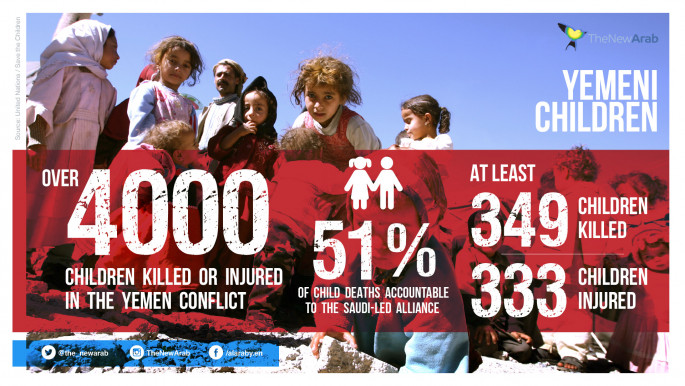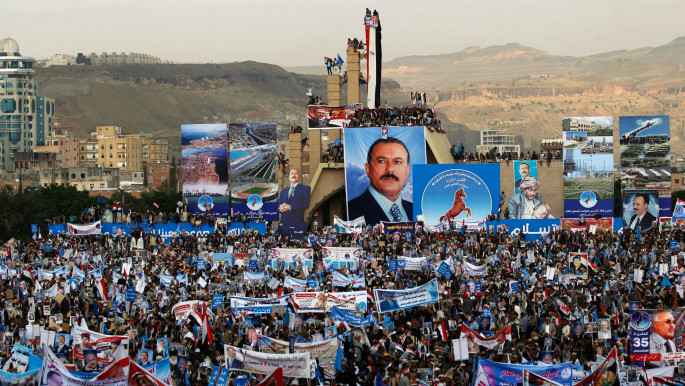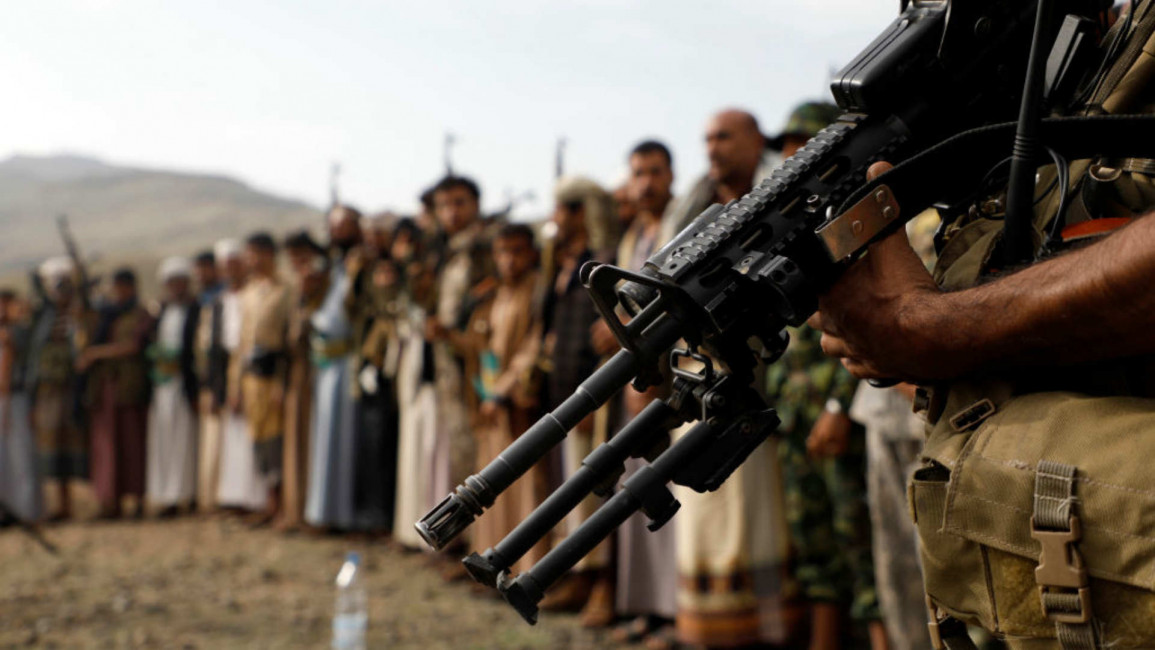
Who benefits from a Houthi-Saleh divorce?
Houthi fighters established a security checkpoint near to former president Saleh's son's house and media office. The move sparked armed clashes, leaving three dead and 10 others wounded. A pro-Saleh army colonel and two Houthi fighters were killed.
Over the past two weeks, the supposed alliance between the Houthis and forces loyal to former president Saleh has soured, and many expected to see Sanaa slide even further into a bloody war between the two sides.
While a large-scale military clash has not yet happened, the patience of both sides is wearing thin, and the latest development in Sanaa puts Yemen's north in a grave peril of another civil war.
Despite their recent choice to ally with each another, the Houthi-Saleh enmity is old, and the founder of the Houthi movement was killed in the 2004 war when Saleh was in power. But when the Houthis seized Sanaa in late 2014, they put their differences aside, and toppled Yemen's internationally recognised government in early 2015.
In recent weeks however, a divorce has been on the cards, as consensus has ebbed away. Last week marked something of a turning point for the Sanaa-based anti-Saudi alliance, and an acid test of their political partnership.
Almost two months ago, former president Saleh began planning anniversary celebrations marking the 35th anniversary of the General People's Congress (GPC), the political party he founded in 1982, and over which he still presides.
But for the Houthis, this was no time for celebration. Instead, their focus was on "confronting the aggression," - in reference to the Saudi-led coalition war in Yemen. Though the anniversary gathering was at first glance no more than a routine political activity, it actually served to trigger an alarming disintegration of relations.
In his last speech on 19 August, Houthi leader Abdulmalik al-Houthi criticised the collaboration with the GPC, saying "We are receiving stabs in the back...even from partners".
 |
Saleh blamed the Houthis for not paying the state employees' salaries, and labelled them as "militias" |  |
Saleh was swift to counter these accusations, emphasising that the GPC anniversary celebration was not against their partner, Houthi group.
But the former president also spoke severely of the Houthis for the first time since their alliance, blaming them for not paying the state employees' salaries, and labelling them as "militias".
The masses flock to Sanaa
GPC supporters and others flocked to Sanaa to celebrate the 35tt year of the GPC, and to demonstrate their support to the man who ruled the country for 33 years.
Arriving from many provinces across Yemen, the sea of people were hopeful that Saleh would declare a peace initiative or do something to help end the war.
 |
|
In the run-up to the anniversary event, GPC organisers hoisted placards in the square, promoting the concept of comprehensive peace among Yemenis. The sense of hope invaded countless hearts in Yemen.
Even the UAE's foreign minister, Anwar Gargash, reacted to the gathering, stating that, "Saleh's last speech shows an obvious dispute with the Houthi partner, and it may represent an opportunity to break the political stalemate created by Houthi intransigence".
| Read more: Yemen's Houthis kill pro-Saleh colonel in clashes as rebel alliance falls apart | |
The hundreds of thousands who took to al-Sabeen Square in Sanaa came with two fundamental problems: Access to food and healthcare, and a lack of freedom of speech. The people want peace, salaries and services. They crave a life without the fear of crackdown.
During Saleh's rule, Yemenis enjoyed relatively greater freedoms. People were able to criticise the regime, and write and speak openly. Today, this is no longer possible.
 |
If the coalition enters Sanaa, the Houthis and Saleh will be both losers |  |
But the truth is that Yemen had several problems even prior to the 2011 uprising, including unemployment and poverty. The two-and-a-half year old war means that these pre-existing problems have turned into unspeakable tragedies. As a result, millions of Yemenis remember the former regime with much nostalgia.
Putting the brakes on an all-out Saleh-Houthi war
Today, we are experiencing the calm ahead of the storm in Sanaa. Former president Saleh and the Houthis no longer trust each other, and the Houthis accuse Saleh of conspiring with the UAE where his son, Ahmed Ali is residing.
 |
|
| Thousands gather in Sanna to show their support for former president Saleh [AFP] |
Saleh's party however, continues to accuse the Houthis of misusing state resources, changing the school curriculum and attempting to dominate all resolutions. The gulf between them is said to be widening dramatically, and will soon be too great to bridge.
Only few matters discourage the two disputing partners from going to war in Sanaa. The two have one significant shared threat: the coalition military advance. The Saudi-led coalition forces are on the outskirts of Sanaa, attempting to push into the capital and recapture it from the Houthi-Saleh alliance.
If the coalition enters Sanaa, the Houthis and Saleh will be both losers. Given their awareness of the Saudi-led coalition's progress, they are well aware that their own infighting could facilitate a coalition victory, and may prefer to put off a fight.
In addition, neither side can be sure of victory, making them reluctant to opt for war. The Houthi group has zealous fighters and arsenals of weapons which make them appear more powerful. But Saleh has the advantage of strong popular support in Yemen's north. If the tension in Sanaa goes unresolved, it will bring a new dimension to the war in this already devastated country.
Khalid Al-Karimi is a freelance reporter and translator. He is a staff member of the Sanaa-based Yemeni Media Center and previously worked as a full-time editor and reporter for the Yemen Times newspaper.
Follow him on Twitter: @Khalidkarimi205
Opinions expressed in this article remain those of the author and do not necessarily represent those of The New Arab, its editorial board or staff.



